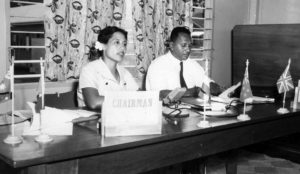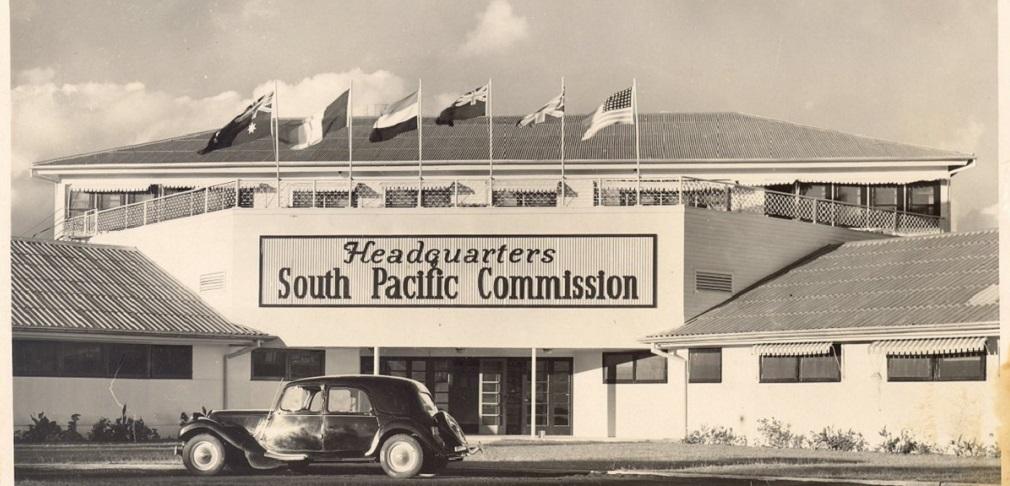Founded in 1947
Originally called the South Pacific Commission, our unique organisation was founded in Australia in 1947 by the six ‘participating governments’ that then administered territories in the Pacific Islands region: Australia, France, New Zealand, the Netherlands, the United Kingdom and the United States of America.
They established our organisation under the Canberra Agreement to restore stability to a region that had experienced the turbulence of the Second World War, to assist in administering their dependent territories and to benefit the people of the Pacific.
Expansion of membership
 In 1962, Samoa was the first island nation to become an independent state and in 1965 was the first to become a full member of SPC. Other island nations in turn became independent or largely self-governing. In 1983, at the 23rd South Pacific Conference in Saipan, all 22 Pacific Island member countries and territories were recognised as full voting and contributing members of our SPC family.
In 1962, Samoa was the first island nation to become an independent state and in 1965 was the first to become a full member of SPC. Other island nations in turn became independent or largely self-governing. In 1983, at the 23rd South Pacific Conference in Saipan, all 22 Pacific Island member countries and territories were recognised as full voting and contributing members of our SPC family.
The Saipan decision, which followed a long period of Pacific leaders taking greater ownership of the organisation, marked our organisation's coming of age with its now comprehensive regional membership and equal vote for all members regardless of their political situation. The decision also reaffirmed our organisation's status as a non-political body. Despite this status, many of the Pacific’s best known leaders – such as Ratu Sir Kamisese Mara of Fiji – took a deep interest in our affairs and contributed strongly to our organisation's evolution.
Change of name
The name, South Pacific Commission, was changed to the Pacific Community at the 50th anniversary conference in 1997 to reflect the organisation’s Pacific-wide membership. Now, our 27-strong membership includes the 22 Pacific Island countries and territories along with five of the original founders (the Netherlands withdrew in 1962 when they relinquished their Pacific interests).
In November 2015, the organisation’s legal name, the Pacific Community, was adopted for general use. The abbreviation ‘SPC’ was retained, given its wide use and recognition throughout the Pacific. Our organisation’s logo was also updated to reflect this change.
